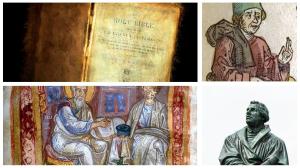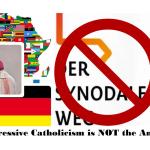In past articles, I addressed the topic of sola scriptura. An issue for me, and others, concerns what stands as the final authority in a Christian’s life. Discussions of this subject between Protestants and Catholics often go down multiple rabbit holes. The Catholic tends to camp on their belief that the Protestant’s appeal to the Bible alone equates to the justification of personal interpretation and theological novelty. On the other hand, Protestants tend to stress that the Bible alone is not alone and appeal to the “pastoral magisterium,” confessions, and creeds to reach theological conclusions. Furthermore, they claim that only the Bible is “God breathed” and, therefore, only appeals to the Bible provide God’s revelation to mankind. Now, if we grant the Protestant position as true, what implications emerge regarding its use throughout the history of the Church? In other words, if sola scriptura is true, what does this truth tell us about God and His plan for the salvation of mankind?
Furthermore, since God linked salvation and the Scriptures together, how has each generation of Christians (everyday, average Christians) utilized the Scriptures (sola scriptura) within their Christian communities?
The Criteria
To conduct our analysis, we must first set the criteria. As a former Reformed Protestant, the best Protestant criteria for the utilization of the Scripture in the vein of sola scriptura appears in The Westminster Confession of Faith (WMCF), Chapter 1, especially paragraphs 4, 6, and 7. The WMCF also lists the contents of Scripture in paragraph 2. Click the link for reference. To avoid overlong quotations, paragraph 6 is quoted in part.
4. The authority of the holy Scripture, for which it ought to be believed and obeyed, dependeth not upon the testimony of any man or church, but wholly upon God (who is truth itself), the Author thereof; and therefore it is to be received, because it is the Word of God.
6. The whole counsel of God, concerning all things necessary for His own glory, man’s salvation, faith, and life, is either expressly set down in Scripture, or by good and necessary consequence may be deduced from Scripture: unto which nothing at any time is to be added, whether by new revelations of the Spirit, or traditions of men.
7. All things in Scripture are not alike plain in themselves, nor alike clear unto all; yet those things which are necessary to be known, believed, and observed, for salvation, are so clearly propounded and opened in some place of Scripture or other, that not only the learned, but the unlearned, in a due use of the ordinary means, may attain unto a sufficient understanding of them.
To sum up: the holy Scriptures come from God and therefore all Christians must obey what it teaches, not any man or Church. Scripture contains all things necessary for salvation and teaches these things clearly to both the learned and unlearned. No one can add to Scriptures (traditions of men). Furthermore, this criterion always applies to all Christians.
With our criteria in place, let us look at its application over time and then offer a final analysis.
Rome, A.D. 145
In Rome, most Christians lived under constant threat of persecution. The rich son of an Eastern bishop name Marcion asserts that he understands the true nature of Christianity over that of the “official” hierarchy of the local Church. He contends that the God of the Jews and the Father of Jesus exist as two separate beings. The God of the Jews, Marcion calls the Demiurge. This God created the corruptible material universe and gave the Jews the law of legalistic, reciprocal justice. Conversely, Jesus’ Heavenly Father, a transcendent God of compassion and mercy, stands against the Demiurge. Furthermore, this God (and Jesus) exist as pure spirit. Jesus only seemed or appeared human. Marcion denied the bodily birth, death, and resurrection of Jesus.
To support his claims, Marcion appeals to his collection of Scriptures, one of the first such collections seen in Rome at the time (again, due to Marcion’s personal wealth, since books were extremely expensive). This collection contains a short Gospel of Luke and ten epistles of the apostle Paul. Marcion declared Paul the only true apostle and the others (the Twelve) as under the influence of the Demiurge.
The Application of the Criteria in A.D. 145
First, no collection of New Testament books exists in the form reflected in the WMCF. Marcion holds one of the first collections in Church history. As the son of a bishop, Maricon also reads and writes. This set him apart from 90% of Christians at the time (and most of history). On his blog, Biblical Scholar Bart Ehman makes the following observation regarding literacy at the time:
…modern studies of literacy have shown that in antiquity most people in every time and place were illiterate. The most influential study has been by Columbia University professor of ancient history William Harris, Ancient Literacy. Harris shows that at the best times and places in the ancient world (say, Athens in the days of Plato), maybe 15% of the population was roughly literate. In most times and places, it was more like 10%. Of that number far more could read than could write.
Therefore, in A.D. 145, most all Christians did not possess the ability to read or write, and those that did lacked the personal wealth to facilitate a hand copy of the Scriptures. In time, other educated Christians, like Irenaeus of Lyon (and part of the Church hierarchy), countered Marcion in works like Against Heresies.
Clearly, due to a near total lack of literacy and resources, almost all Christians living in A.D. 145 could not utilize the criteria laid out in the WMCF. How does the truth reflected in the WMCF apply here? Remember, since Scripture comes from God, its truth applies always and to all Christians.
Carthage, A.D. 414
A few years before A.D. 414, the Visigoths sacked Rome. This effectively ended the Roman Empire in the West. Those living in Carthage still reel from the aftermath, as thousands of refugees from Rome call Carthage home. One of those refugees is the British theologian Pelagius. A highly intelligent and educated man (in both Greek and Latin), Pelagius often stressed personal piety and asceticism. He also taught that God made man good and that man, as made good in God’s image, can live a holy life apart from grace. He also denies that humans carry the guilt for Adam’s sin, which rendered infant baptism ineffective. These teachings put him at odds with the bishop of Hippo, Augustine.
Like Marcion before him, Pelagius also appeals to Scripture to support his claims. Furthermore, he has access to the full (but unofficial) list of 27 New Testament books. He uses his masterful knowledge of Scripture to great effect, which causes great confusion and unrest in Carthage.
The Application of the Criteria in A.D. 414
Sadly, the issues with illiteracy and poverty persist in Carthage in A.D. 414 as they did in Rome over two centuries before. Therefore, all the factors that existed then in Rome still exist now in Carthage, regardless of the fact that a complete list of New Testament books exists. Still fashioned by hand, the rarity of books endures. As with Irenaeus, most Christians rely on educated Church leaders, like Augustin of Hippo, to counter the teachings of Pelagius and reassure them in their Christian faith.
As before, almost all Christians living in A.D. 414 fell far short of the criteria reflected in the WMCF due to the same lack of literacy and resources. Again, how does the truth reflected in the WMCF apply here? Remember, since Scripture comes from God, its truth applies always and to all Christians.
Wittenburg, A.D. 1521
Theological chaos rages across Germany. In May, the Holy Roman Emperor declared Augustinian monk and theologian Martin Luther a heretic and outlaw with the Edict of Worms. A month prior, Luther made a bold proclamation for his own theological teaching at the Diet of Worms, stating:
Unless I am convinced by the testimony of the Scriptures or by clear reason (for I do not trust either in the pope or in councils alone, since it is well known that they have often erred and contradicted themselves), I am bound by the Scriptures I have quoted, and my conscience is captive to the Word of God. I cannot and will not recant anything since it is neither safe nor right to go against conscience. May God help me. Amen.
The Church conducted the diet for Luther to recant his teaching or face removal from his post at Wittenburg University and excommunication per papal bull Exsurge Domine. Some of the teachings of Luther condemned by the bull include:
That there are three parts to penance: contrition, confession, and satisfaction, has no foundation in Sacred Scripture nor in the ancient sacred Christian doctors.
Purgatory cannot be proved from Sacred Scripture which is in the canon.
And
The Roman Pontiff, the successor of Peter, is not the vicar of Christ over all the churches of the entire world, instituted by Christ Himself in blessed Peter.
The Pope declared Luther’s view in error and against the proper interpretation of Scripture within the Church:
We have found that these errors or theses are not Catholic, as mentioned above, and are not to be taught, as such; but rather are against the doctrine and tradition of the Catholic Church, and against the true interpretation of the sacred Scriptures received from the Church.
As stated above, Luther refused to recant his personal interpretation of Scripture and received a formal dismissal and excommunication.
The Application of the Criteria in A.D. 1521
Moreover, as with Rome in 145 and Carthage in 414, near universal illiteracy persisted in Germany (and Europe) at the time of Martin Luther. However, unlike in previous times, access to the Scriptures changed with the invention of Gutenberg’s printing press around 1440. After 1440, books (including the Bible) witnessed a mass increase in production. Luther also translated the Bible from Latin into German, allowing for greater access to the Bible for those who read German. Sadly, most Germans lacked the necessary skills to read German.
Intriguingly, according to literacy historians and advocacy groups, Luther’s appeal to Scripture and personal interpretation sparked a movement towards universal literacy in Europe.
In the wake of the spread of Protestantism, the literacy rates in the newly reforming populations in Britain, Sweden, and the Netherlands surged past more cosmopolitan places like Italy and France. Motivated by eternal salvation, parents and leaders made sure the children learned to read.
However, even with the push towards reading and writing by Protestantism, anything approaching true universal literacy did not occur worldwide until the mid-twentieth century (as this chart demonstrates). Therefore, despite Luther’s appeal to Scripture in his contentions against the Catholic Church, almost all Christians in Germany did not possess the skills needed to either verify his teaching or deny them. In their ignorance, they either took Luther at his word or the word of the Church. And, as with the previous two time periods, Christians fell far short of the criteria reflected in the WMCF—a criteria from God that applies always and to all Christians…
Final Analysis of the Criteria Offered in the WMCF
Our first of our criteria comes from paragraph 4 of the WMCF.
4. The authority of the holy Scripture, for which it ought to be believed and obeyed, dependeth not upon the testimony of any man or church, but wholly upon God (who is truth itself), the Author thereof; and therefore it is to be received, because it is the Word of God.
In all time periods, almost all Christians lacked any skill needed to learn from Scripture beyond “the testimony of any man or church.” Most Christians were wholly dependent on the educated classes to relate truth to them. Unable to tell the Scriptures apart from the Iliad or Plato’s Republic, almost all Christians obviously lacked the ability to challenge thinkers like Marcion, Pelagius, and Martin Luther. For them, the Bible contained God’s black box, a total unknown reality.
6. The whole counsel of God, concerning all things necessary for His own glory, man’s salvation, faith, and life, is either expressly set down in Scripture, or by good and necessary consequence may be deduced from Scripture: unto which nothing at any time is to be added, whether by new revelations of the Spirit, or traditions of men.
The above reflects a nice sentiment, but for most Christians throughout Church history, it ends there. As wholly dependent on “the testimony of any man or church,” almost all Christians lacked any skill to discern for themselves what is “either expressly set down in Scripture, or by good and necessary consequence may be deduced from Scripture.” What constituted a “tradition of men?” They had no idea.
7. All things in Scripture are not alike plain in themselves, nor alike clear unto all; yet those things which are necessary to be known, believed, and observed, for salvation, are so clearly propounded and opened in some place of Scripture or other, that not only the learned, but the unlearned, in a due use of the ordinary means, may attain unto a sufficient understanding of them.
The WMCF does address the unlearned. In the above paragraph it states that both the learned and unlearned can attain sufficient understanding those things necessary for salvation “in a due use of the ordinary means…” It does not go into detail regarding said means. It infers that the “unlearned” here at least know how to read and write at a remedial level, not total illiteracy.
In short, the WMCF’s criteria (and Protestantism in general) assumes literacy. Sola scriptura becomes a meaningless term if no one possesses the ability to access “scriptura.” Protestants will retort that the Scriptures’ inaccessibility does not diminish its authority. Here, Catholics agree. However, if sola scriptura is true and always applies to all Christians, the fact that most Christians lacked access until less than a hundred years ago reflects poorly on its universality and applicability.
What good is an inaccessible authority your salvation depends on? Clearly, God did not lock His message of salvation away in a inaccessible black box.
I give the final word to Catholic apologist Jimmy Akin
It is thus hard to think of sola scriptura as anything but the theory spawned by a bunch of idealistic, Renaissance-era dilettantes—people who had an interest in being their own theologians, who had a classical education in critical thinking skills, who had adequate nutrition, who had plenty of leisure time for study, who had plenty of scholarly support materials, who had good reading skills, who had access to Bible-sellers, and most importantly, who had printed Bibles!
Thank you!
Read The Latin Right’s other writing here.
Please click the link below to join.
Voices of the Faithful in the Synod on Synodality
Please make your voice heard.
I Support Church Teaching in the Synod of Synodality













